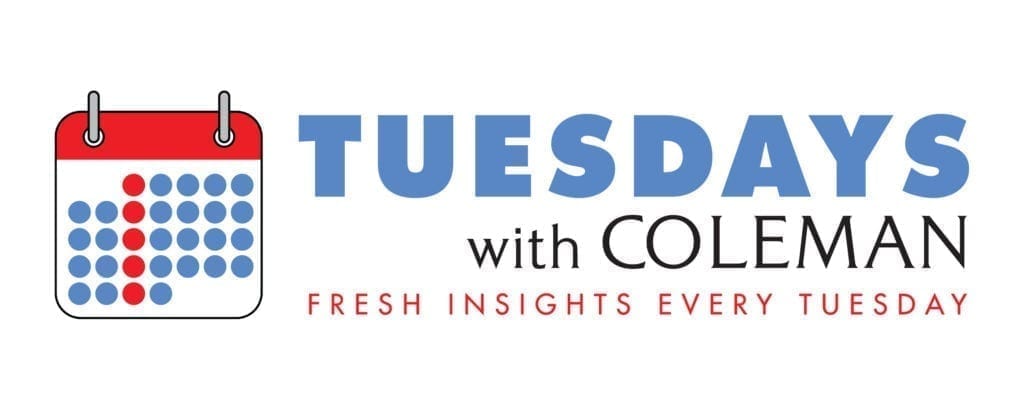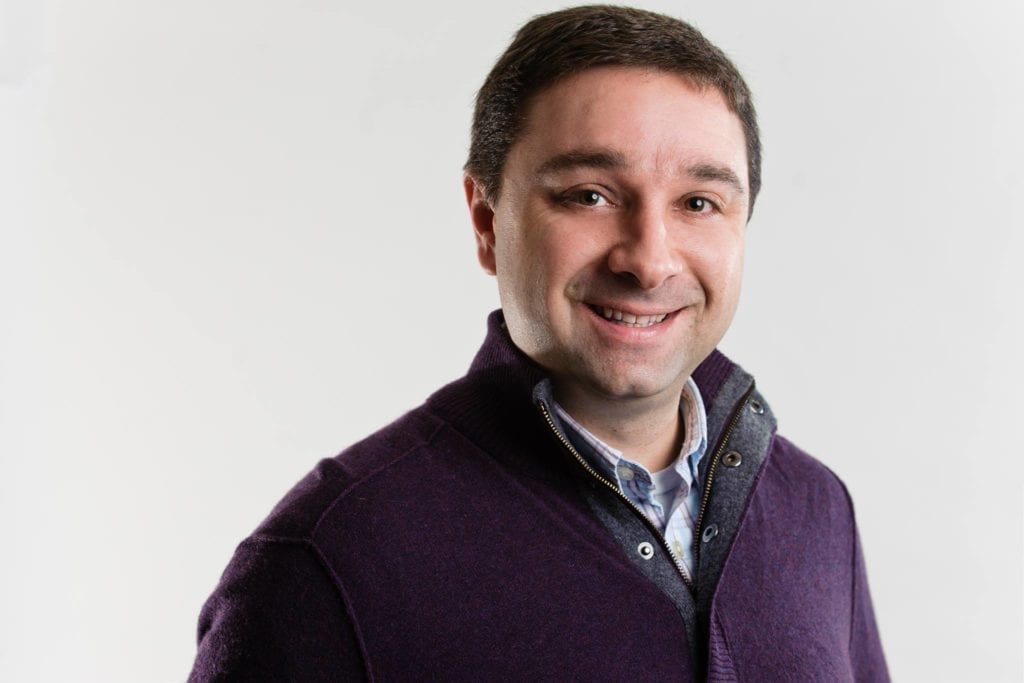 What a difference a few weeks, days and hours makes.
What a difference a few weeks, days and hours makes.
Before the travel bans, before sports and concerts cancelled and before schools closed, I paid a visit to Syracuse University for my college radio station’s 35th annual reunion. I returned from that trip just nine days ago.
The keynote of the WJPZ Alumni Banquet featured three SU grads: Jeff Kurkjian, host of Jeff and Aimee in the Morning on 102.7 The Coyote, a Las Vegas Country station; Pete Gianesini, Senior Director of Digital Audio Programming for ESPN and Brent Axe, host of the “On The Block” afternoon show on ESPN Radio/Syracuse and a reporter for Syracuse.com.

Syracuse Sports Journalist Brent Axe
During the session, Brent brought up a principle that guides his show planning, called the POKE scale. As with many others in the industry, his brand stretches across platforms including hosting his own podcast. I wanted to know how Brent is using POKE to build his brand, develop compelling and engaging content and demonstrate differentiation as a reason for listening.
Just last Wednesday, we spent some time on the phone discussing it. Syracuse was set to play the University of North Carolina in the ACC Men’s Basketball Tournament later that night. While we knew sports would soon be played without fans in the venues, the thought of cancelling them altogether hadn’t yet crossed our minds.
That was six days ago.
Brent and I discussed how POKE plays a role in his daily planning, including the way he covered Coronavirus on his sports talk show up to that point.
Perhaps there’s value now, more than ever, in applying the POKE scale to show prep–certainly in a format (Sports) built around something that currently, for all intents and purposes, doesn’t exist. In addition, as Brent explains, it is equally important to recognize when to make adjustments.
Read an edited transcript or listen to the entire interview below.
JAY:
When I saw you in Syracuse, you mentioned the POKE scale. Talk about the acronym and what each letter means.
BRENT:
Passion, Opinion, Knowledge and Entertainment. I write my show notes on a legal pad. Every day on the top of the legal pad I write the date of the show and POKE. If you’re accomplishing those four things, particularly in the type of show I do, you’re checking the box.
Let’s start with Passion. The number one thing my listeners say to me is they appreciate my passion. They might not agree with what I’m saying, but they enjoy the manner in which I’m delivering it.
Opinion. Listeners are looking for you to have a defined, clear take. As we speak, Syracuse is getting ready to play in the ACC Tournament. They have to win to go to the NCAA Tournament. The discussion on the show is, “If they don’t win, is it a failed season?” If I don’t think it’s a failed season, I have to explain why.
Knowledge is prepping. And when you work in this industry, you’re constantly prepping. When you’re watching sports, you’re debating with yourself. First it’s, “Am I going to talk about this?” If the answer is yes, then it’s “How?” And how do I keep it entertaining for those that aren’t hard core sports fans?
JAY:
Are you putting each topic through the POKE filter to determine how each break works within that structure?
BRENT:
I try to. The other day I talked about Coronavirus and I broke the Opinion rule. I said, it’s my job to have an opinion here, but this is a case where we don’t know enough to have a firm opinion. You can have an opinion, but you have to clarify it sometimes when it’s beyond the scale. This is real life interfering with sports, so I’ll be honest with my listeners. When I came on, I said, I’m not an expert, I know what I know, here’s the information we have, and let’s go from there. That’s where putting it through the filter doesn’t always work. I heard a call from Bob Costas who was talking about sports talk radio and the “First Take” shows of the world and podcasts, and Bob said you can’t possibly be that opinionated about something for three hours a day, five days a week. And he’s right. When I look at the four things in the POKE scale, (I might say) I can’t entertain you today. Coronavirus is a serious discussion. You’ve got to know when to break the rules and let people know that today’s a little different.
JAY:
So many shows right now are trying to figure out how to handle approaching the Coronavirus. If you had handled it with updates like a hard news station, it would be out of left field and not consistent with your brand.
BRENT:
And that’s where Knowledge comes into play and applies to guests. If I don’t know, get somebody on that does. It’s growing so many different layers. Schools cancelling classes. Events that are being cancelled. What do I do as a fan? Do I go to games? This is not going anywhere anytime soon, so knowledge becomes important. Trusting sources, getting people on the air with you that can explain it. If you’re not knowledgeable about it – in this case it’s Coronavirus but it could be a 2-3 zone defense – get somebody on who is knowledgeable.
JAY:
Do you think authenticity goes part and parcel with Passion?
BRENT:
Yes. You can’t control authenticity. Your audience is making that judgement. You’ve got to be authentic and people will appreciate that more.
JAY:
Many hosts are afraid to give their opinion, whether it be because they fear it will be controversial or taken the wrong way. Do you always say what you believe or do you sometimes take an opinion you feel will be good for the show?
BRENT:
It’s important to me that my opinion–going back to that word we used a minute ago–is authentic. The opinion I give someone in public better be the same as it is on the radio.
JAY:
On the topic of brand development, listeners will see through it if it doesn’t match the brand perception of who you are.
BRENT:
I’ve been doing radio in Syracuse since 1996. My listeners know certain things about me. I’ve had an opinion for years that Pete Rose should not be in the Hall of Fame and nothing has come along to change my opinion. So every time Hall of Fame voting comes around, I hear from people. “You still feel this way?” It can help build a brand and build awareness when people know what your opinion is.
JAY:
Does the POKE scale work outside of Sports? Like for a morning show on a CHR or Hot AC station, for example?
BRENT:
Yes. For example, you need to be passionate about the market you work in. That’s essential. Having an opinion and gathering other opinions is important. Knowledge speaks for itself and we’re all entertainers! That’s what I love about the POKE scale. It does apply to just about everything you can do in this business.
We send our thanks to Brent for taking the time to share the principles of the POKE scale, and applaud every radio personality going above and beyond to serve their listeners in important, crucial and memorable ways.
